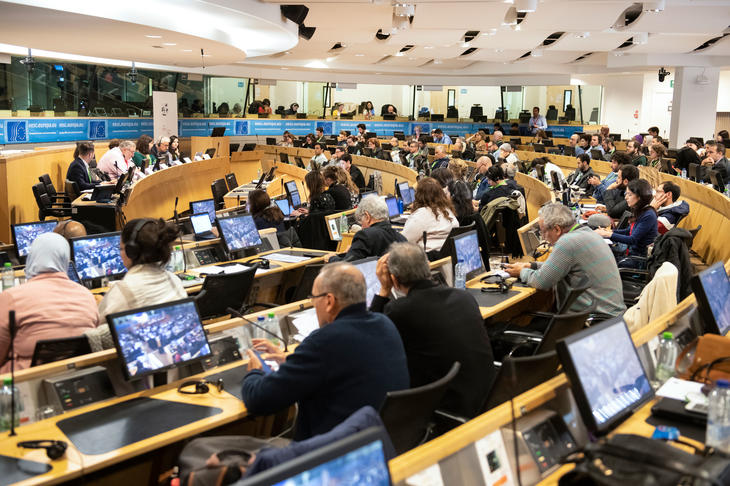EU-MENA Policy Dialogue

In 2012, the European Commission adopted a strategic partnership with the civil societies of the countries in which it supports projects. The new approach follows a “roadmap” negotiated with host governments in some 100 countries, including eight states in the MENA region: Algeria, Egypt, Iraq, Lebanon, Mauritania, Morocco, Palestine and Tunisia.
Within the frame of that new approach to civil society engagement, Majalat is an initiative launched by a group of civil society organizations (CSOs) concerned about the Southern European Neighborhood, led by the Arab Network of NGOs for Development, the Euro-Mediterranean Human Rights Network, the Euro-Mediterranean Network, the Arab Union of Trade Unions and the Alternatives Forum.
This initiative implements a key recommendation of the last regional dialogue between MENA civil society and the EU at Beirut in 2017, including CSOs and labor unions with the EU institutions “to prioritize and engage formulation of a regional policy agenda also to promote participation on topics identified by civil society organizations as a priority, and to establish networks at the regional level.”
The EU’s dialogue process with CSOs in the southern neighboring countries became important following the uprisings in the Arab region 2011. The EU considered the people’s demands in the region of internal and external policies in southern Mediterranean countries to enhance participation in policy making.
MENA organizations identified a set of priorities for the discussion with the EU, which frames the initiative:
- Security and facing violence,
- Migration and mobility,
- Good governance,
- Economic development and community dialogue.
In addition to these priority fields, the region’s CSOs face other challenges to share in the policy formulation with the EU. These include narrowing space and independence of civil society, accessing the official information and the capacity to mobilize sustainable resources, added to which are persistent wars and conflicts in the region that undermine CSOs’ capacity as an indispensable partner in building stability, sustainable development and peace.
The Majalat group, based on the EU’s Southern Neighborhood Policy Initiative, organized its first regional meeting in Amman in September 2018, convening many of the region’s CSOs to discuss and assess key priorities, building on previous dialogue exercises. The first dialogue with EU institutions took place in December 2018 in the Regional Civil Forum at Brussels.
At the Brussels meeting, CSOs also criticized some of the EU’s neighborhood policies. The most important of these are that these policies do not address the root impediments to development and equal relations at the regional and global levels. For example, the partnership agreements are limited only to the conditions and interests of the stronger parties. They rejected the inclusion of Israel within the framework of the regional partnership, and considering it politically and morally unacceptable for the EU not to reconsider its position with respect to the Palestinian people to self-determination and the maintenance of the people’s inalienable rights.
Civil society also discussed with EU officials some cross-cutting issues, such as a human rights-based approach to implementing European Neighborhood Policies, supporting effective protection to human rights defenders, vulnerable social groups and social protection. In this light, CSOs called on the EU to define and implement its policies better.
In the years 2019 and 2020, a full cycle of activities with thematic workshops and national workshops will take place. The most recent meeting took place in April 2019. The final outcomes will be reviewed at the 2020 Regional Conference on Southern Neighborhood Policy and Brussels Civil Forum.
To learn more about the MIAI activities please click on Majalat.
|